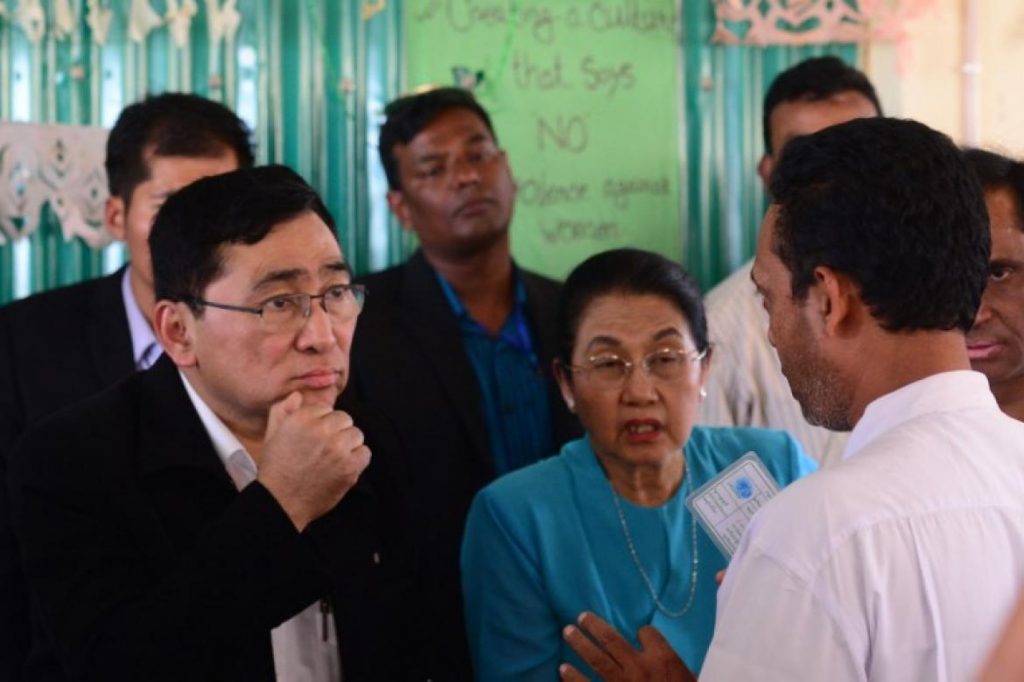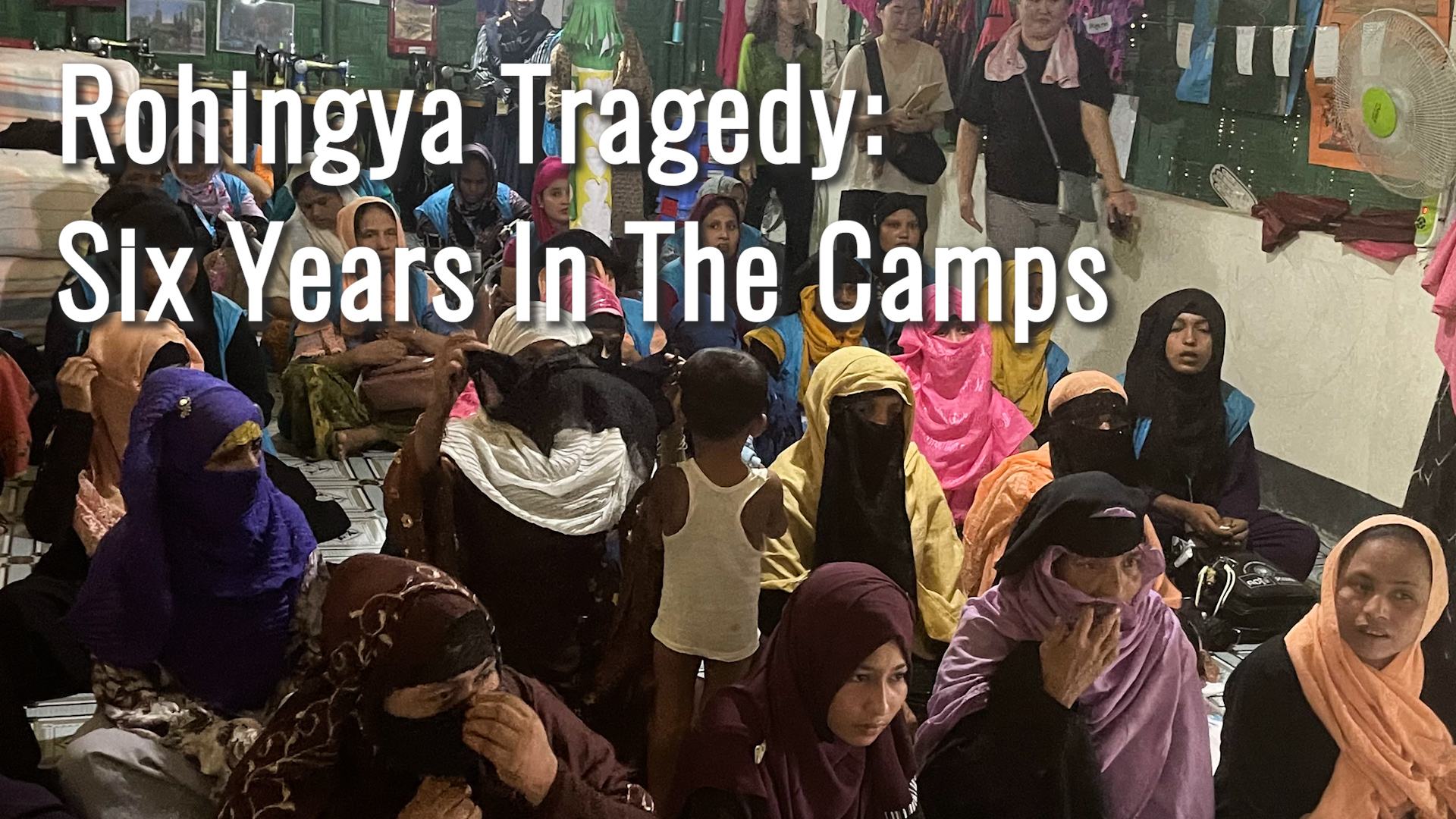By AFP
YANGON — Myanmar has expressed “serious concern” over an attempt at the International Criminal Court to open a probe into mass deportations of Rohingya Muslims, dismissing the claims and saying the court has no jurisdiction.
On Monday, the chief prosecutor for the International Criminal Court in The Hague asked judges to rule whether the body has jurisdiction to open a probe into the more than 670,000 Rohingya who have been “intentionally deported across the international border into Bangladesh”.
Myanmar responded on Friday in a statement from the ministry that oversees civilian leader Daw Aung San Suu Kyi’s state counsellor office.
The statement highlights the legal thorniness around the possible probe by arguing that Myanmar is not a party to the Rome statute that countries must sign on to as ICC member states.
Support more independent journalism like this. Sign up to be a Frontier member.
“Nowhere in the ICC Charter does it say that the Court has jurisdiction over States which have not accepted that jurisdiction,” Myanmar’s statement says.
Bangladesh is a member, however, and chief prosecutor Ms Fatou Bensouda said in her filing that her office does have the authority to investigate.
She contends the crime of deportation is like a cross-border shooting and “not completed until the bullet [fired in one state] strikes and kills the victim [standing in another state]”.
A pre-trial chamber of judges is currently reviewing her request but no decision has been made.
Myanmar’s government said the prosecutor is attempting to override its sovereignty and rejected the claims in the filing.
“Myanmar reiterates that it has not deported any individuals in the areas of concern and in fact has worked hard in collaboration with Bangladesh to repatriate those displaced from their homes,” the statement said.
The two countries have agreed to start repatriating Rohingya refugees but so far not one has returned.
Set up in 2002, the ICC is the only permanent war crimes court and acts to prosecute abuses including genocide in countries where national courts are unwilling or unable to act.







